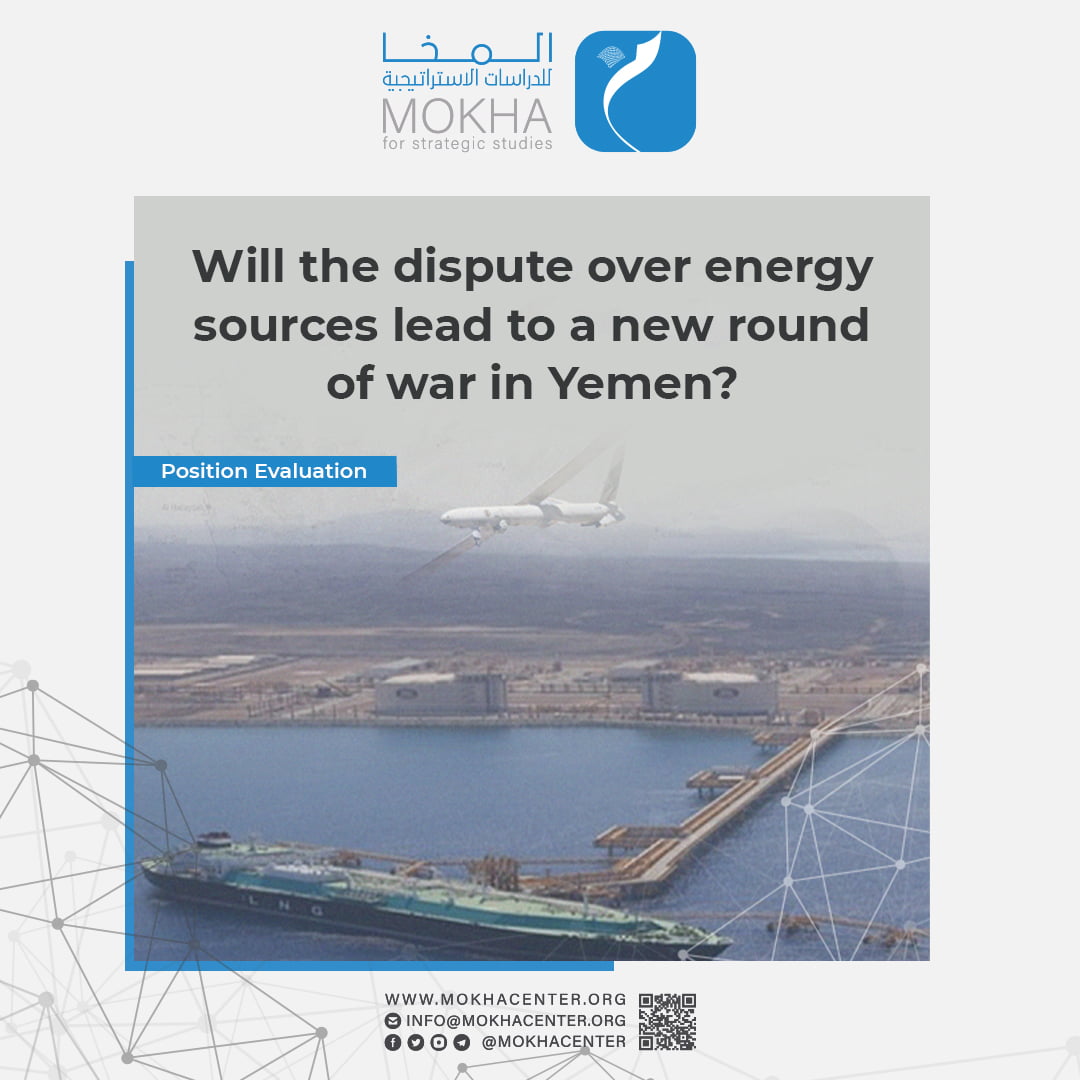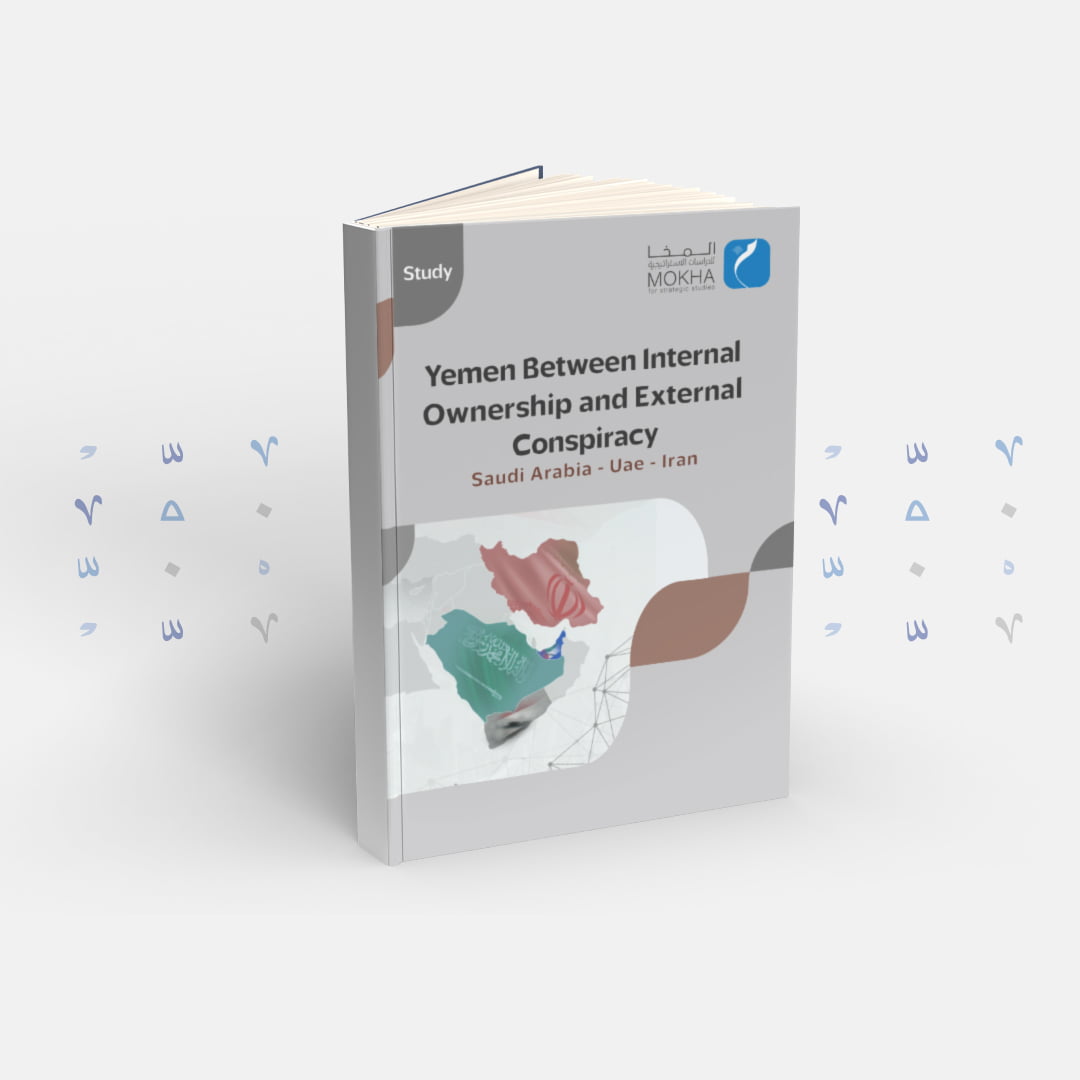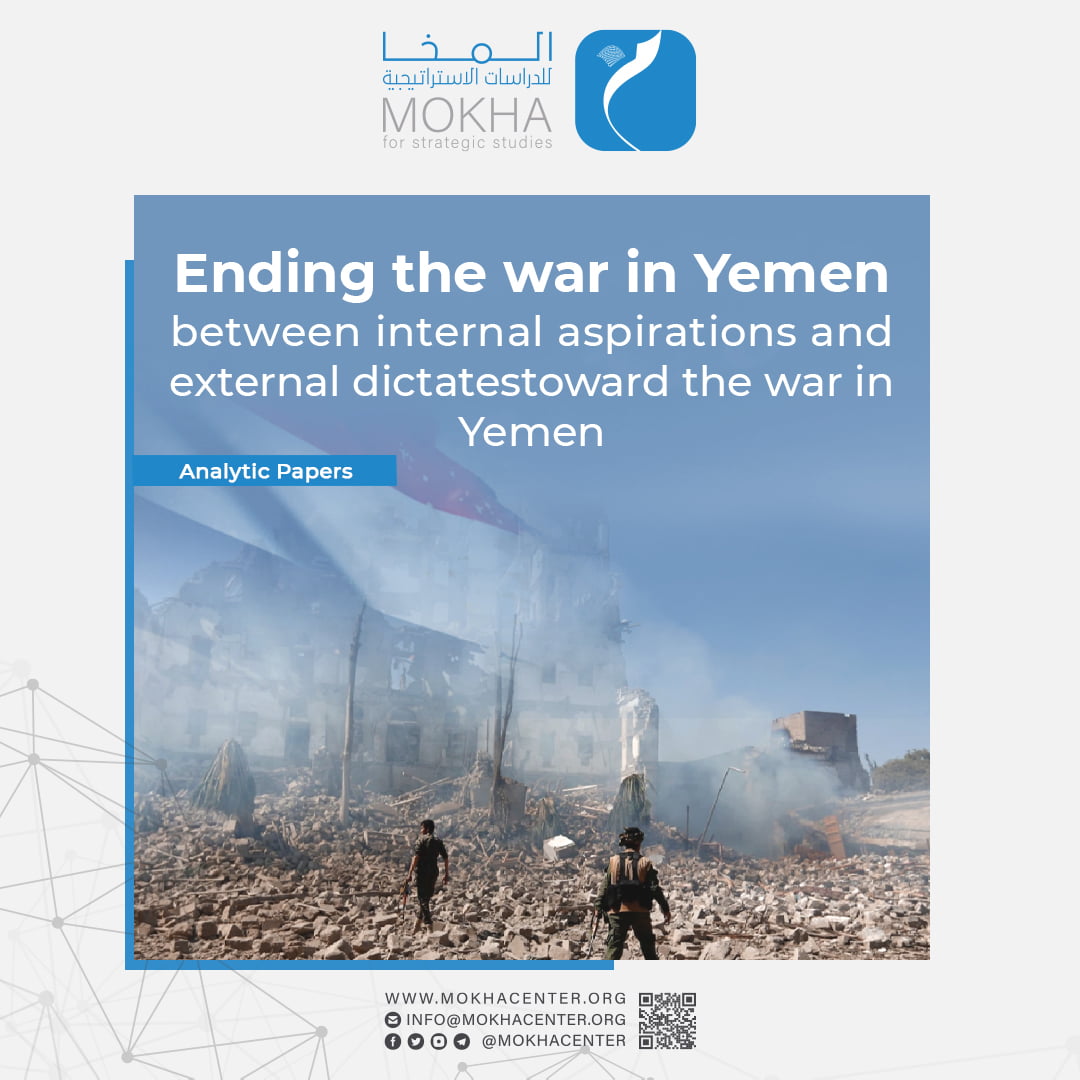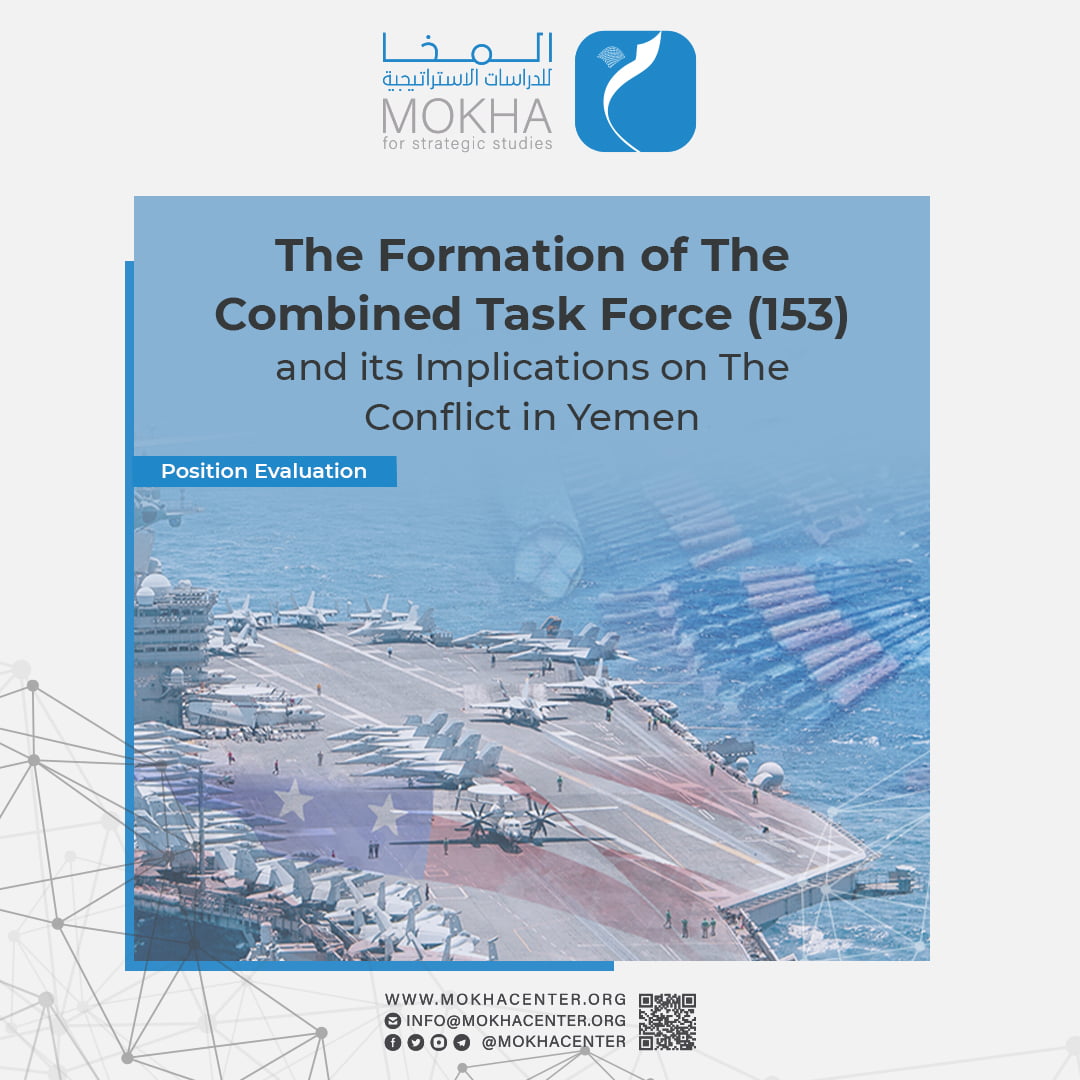Iran’s Potential Reaction to Israeli Attack on the Iranian Consulate and Its Impact on Yemen
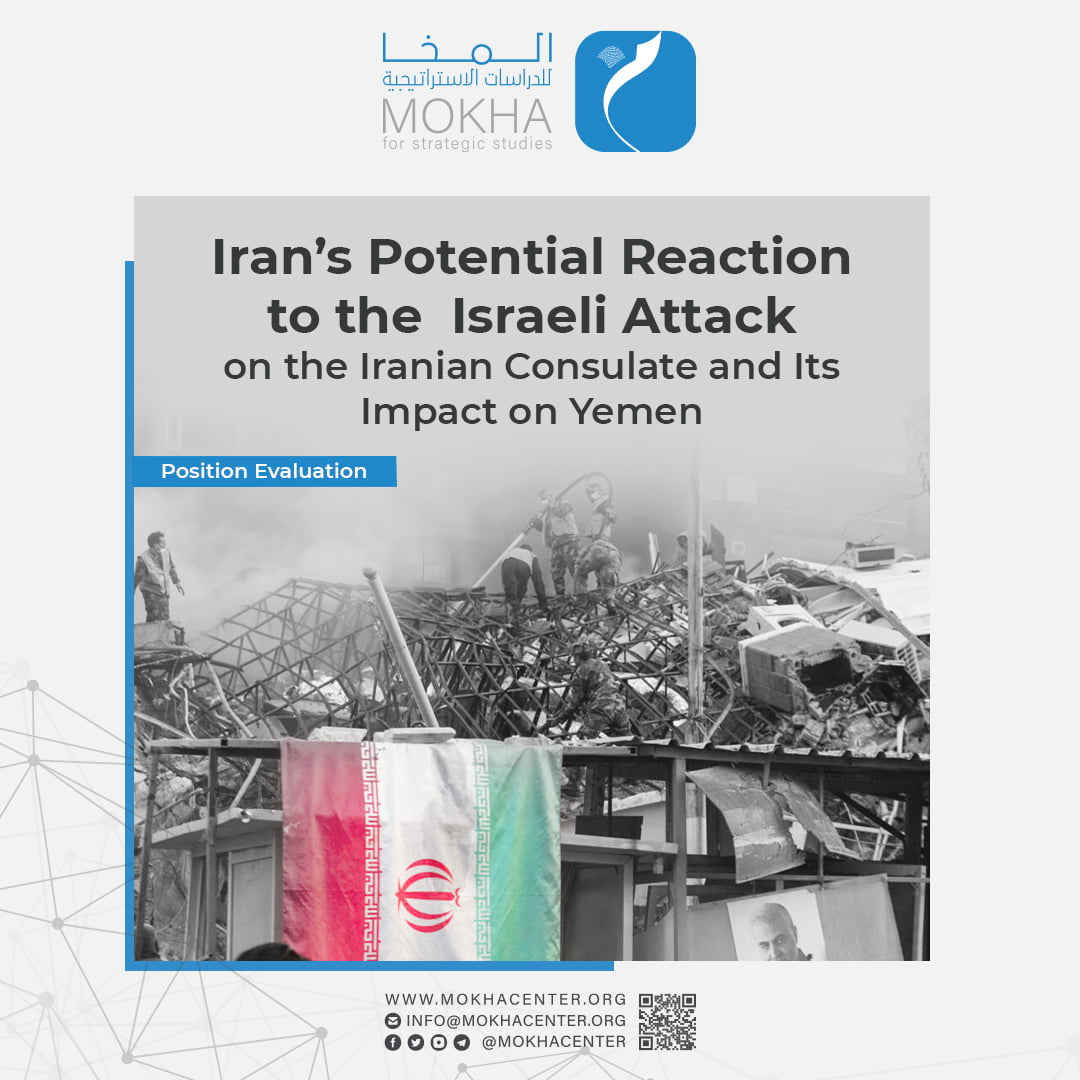
| Getting your Trinity Audio player ready... |
Abstract
On April 1, 2024, Israel launched an attack on the Iranian consulate in Damascus, Syria, as part of ongoing tensions between Israel and Iran, amid the backdrop of the Israeli conflict with Gaza. This attack resulted in the deaths of several high-ranking military commanders of the Quds Force, a branch of the Iranian Revolutionary Guard, including Mohammad Reza Zahedi and Mohammad Hadi Rahimi. Iran and its affiliated militias had pledged to retaliate: President Ebrahim Raisi of Iran declared that Israel’s actions would not go unanswered1, while Supreme Leader Ali Khamenei emphasized the need to punish Israel for its actions. Lebanese Hezbollah described the attack as a pivotal moment and expressed its support for Tehran’s right to retaliate against Israel.2
Yemen seems positioned to play a role in shaping Iran’s response to the Israeli attack. Iranian Foreign Minister Hussein Amir Abdullah Al-Layan’s visit to Muscat on April 7, as part of a regional tour, focused primarily on formulating Iran’s reaction. During this visit, Abdullahian engaged with Mohammed Abdul Salam, the spokesperson for the Houthi group residing in Muscat. In their meeting, Al-Lahyan pledged to hold Israel responsible and to seek retribution. In response, the Houthi spokesperson expressed solidarity with Iran.3
As tension rises between Iran and Israel, and with Iranian officials issuing threats, Israel declared on April 10 that it would retaliate directly against Iran if attacked from Iranian soil4. With regional and international attention focused on potential responses, questions arise regarding Iran’s available options. How might these options impact the situation in Yemen? This paper aims to explore this topic.
First: Factors Influencing the Iranian Reaction:
Before reviewing Iranian options, it is necessary to list the most important determinants upon which Iranian options, to respond to the Israeli attack, are based. The most important of these determinants are the following:
Investing in agents:
Since the end of its war with Iraq in 1989, Iran has adopted a strategy of avoiding direct conflict with regional or international powers possessing significant military capabilities. Instead, it has focused on creating and supporting armed militias, exemplified by groups in Lebanon, Iraq, Syria and Yemen, to fight on its behalf. This approach, known as “proxy war,” or “asymmetric warfare,”5 allows Iran to engage in conflicts indirectly, as Iran prioritizes building and expanding its military, political and ideological power while providing pretexts to avoid confrontations in the region.
Elevated Rhetoric in Threats:
Iranian leaders have adopted a rhetoric that threatens Israel with a significant retaliation, contributing to heightened expectations among its supporters and affiliated militias. This has put the region and the world on alert, increasing pressure on the Iranian leadership and making it more challenging to evade or provide a formal response. Such actions risk reinforcing the perception of Iran as a nation that resorts to threats but struggles to follow through, particularly in light of its response to the U.S. military killing of Qassem Soleimani, which was largely symbolic.
Striving to achieve gains:
Despite Iran’s lofty ideological and media-driven rhetoric, its leadership typically approaches events with a pragmatic mindset. Behind the scenes, it works strategically to leverage these events for political and security advantages. It is anticipated that this pragmatic approach will also guide its response to the current incident, likely involving negotiations with the United States. These negotiations may seek assurances that Israel will refrain from targeting Iranian military and security installations in Syria and Iraq.
The need to achieve deterrence:
Tehran aims to leverage this incident to establish deterrence, preventing further Israeli assaults on its military and security installations in Syria and the broader region. The recent attack on its consulate building in Damascus was not an isolated event. It followed several previous attacks, including an Israeli strike on Lebanese Hezbollah positions in parts of the Aleppo countryside on March 29. This attack resulted in the deaths of several field commanders, notably Ali Naim, the deputy commander of Hezbollah’s Rocket and Missile Unit.
The American Stance:
Iranian leadership regards the American stance with apprehension and factors it in when considering available options. Since the onset of the conflict in Gaza, Washington has focused on deploying various measures to forestall regional war escalation. Amid escalating tensions between Tehran and Tel Aviv following the consulate building attack, the American administration has intensified efforts to avert a confrontation between Iran and Israel. This involves several approaches: engaging in communication with Iran to potentially broker a deal that would prevent or manage Iran’s response and reaffirm support for Israel. On Wednesday, April 10, U.S. President Joe Biden reiterated unwavering backing for Israel in the face of Iran’s threats6. Additionally, the United States has rallied regional and international support to de-escalate tensions. The U.S. State Department announced that Secretary of State Anthony Blinken had engaged with Turkey, China and Saudi Arabia’s foreign ministers in the past 24 hours, emphasizing that Middle East escalation is detrimental to all parties’ interests.7
Second: Potential Courses of Action:
Iran has several options to retaliate against the Israeli attack, and it may opt for one or a combination of the following:
Option One: Negotiating for Concessions:
Despite pressures urging Iran to militarily retaliate against Israel, such a response is not inevitable. Iran may instead pursue a deal, with Washington, that is aimed at curbing Israel’s attacks on its military and security forces in the region. Iran could justify refraining from retaliation by claiming that it aimed to exert psychological pressure on Israel or to negotiate a halt to the Gaza conflict.
Option Two: Formal Retaliation:
Should the first option fail or if the costs and risks of other options escalate, Iran may resort to formal retaliation. Drawing from its response to the U.S. forces murdering Qassem Soleimani, Iran is likely to target specific sites with limited damage. Israel may even be forewarned of these targets through American or European channels. This option aims to save face, alleviate embarrassment and relieve pressure.
Option Three: Calculated, Non-Escalatory Response:
Should Iran feel compelled to respond to the Israeli attack, it will ensure the response is measured and avoids significant risks, such as a confrontation with Israel or the U.S. This approach, referred to as a “calculated, non-escalatory response,” seeks to deter aggression while maintaining Iran’s credibility. Iran may delay its response to carefully engineer it to avoid getting embroiled in a full-scale conflict. It is anticipated that attacks may originate from Iranian territory or factions in the region (Syria, Iraq or Lebanon), targeting sites in the Golan Heights. Additionally, Houthi attacks in the Red Sea may be activated. However, Israel’s vow to retaliate against any attacks from Iranian territory complicates this option, raising the stakes and potentially prompting Iran to target Israeli embassies or diplomatic missions in the region. The Israeli embassy in Bahrain is considered a plausible target due to Bahrain’s proximity and limited military capabilities.
Fourth Option: Response through Proxies and Militias:
This option aligns closely with Iran’s traditional approach to managing regional tensions. It aims to minimize its direct involvement in a war with Israel and, potentially, the United States. Several statements suggest that Iran may be leaning toward this option, including declarations that resistance forces will spearhead the response, potentially plunging the entire region into conflict. Reports indicate that plans and targets for this response have been established, with the Iraqi Kurdistan region no longer favored, due to political dynamics. Furthermore, American forces in Iraq and Syria are unlikely targets due to concerns about potential U.S. retaliation.
Under this option, militias in Syria, Lebanon and Yemen are expected to act on behalf of Iran. The recent escalation of Houthi attacks in the Red Sea, despite a previous decline, and the meeting between Iranian Foreign Minister Amir Abdullahian and Houthi spokesperson Mohammed Abdul Salam in Muscat suggest such a response is underway. However, Israel’s heightened preparations for a potential attack from the northern front, including redeployments in Gaza and threats toward Lebanon, complicate this option.
Fifth Option: Robust and Deterrent Response:
This is not Iran’s preferred option, but it may be compelled to pursue it if drawn into a cycle of escalation. For instance, if Iran targets a site within Israel, prompting a broader Israeli counterattack, which in turn necessitates further Iranian responses, a cycle of escalation could ensue.
The table below outlines Iran’s available options, along with the factors favoring and hindering each option, potential outcomes and the implications on the situation in Yemen:
Options | Supporting Factors | Inhibiting Factors | Potential Outcomes | Implication on theSituation in Yemen |
Exchangingthe response for other demands | • avoiding direct conflict and focusing on bolstering Irans power.• Potential benefits include securing assurances from the U.S. that Israeli attacks on the Revolutionary Guards in Syria will cease.• The U.S. administration is actively seeking negotiations with Iran to prevent further escalationof the conflict.• The region is already fraughtwith tension.• Germany and several Western nations are actively working tode-escalatethe situation. | • Netanyahu rejected imposing limitations on Israel’s actions toward the Revolutionary Guards in Syria.• Disappointment among supporters and loyal militias.• Iran’s rhetoric has lost credibility among a broad segment of the regional populace. | • Establishing agreements with Washington.• Securing the Iranian military presence in Syria.• Reinforcing the strategy of cooperation between Tehran and Washington, with potential expansion to address other regional issues, including those in the Red Sea. | • It could foster diplomatic understandings between Iran and the United States, potentially facilitating negotiations between America and the Houthis concerning the Red Sea.• It might alleviate certain constraints limiting the Revolutionary Guard’s operations in Syria and the broader region.• It could, to some extent, bolster Iranian influence across the region. |
Formal response | • Iran’s concerns regarding the risk of being drawn into a costly conflict.• Upholding reputation.• Risks associated with escalating the conflict further.• Balancing the imperative to respond and the apprehension of escalating intofull-scale warfare. | • The adverse effect it will have on Iran’s reputation among the general populace.• The rhetoric threatens retaliation against Israel. | • Ruling out the possibility of direct confrontation with Israel and potentially the United States.• The erosion of Iran’s reputation among the general populace. | • Iran’s credibility has diminished within Yemeni communities, including certain factions supportive of the Houthi group.• It offers fodder for media outlets to criticize Iran and undermine its assertions regarding the Palestinian cause. |
Measured and non-escalatory reaction | • Iran’s imperative to reaffirm the deterrence factor.• It sends a message to deter further attacks on its forces in the region.• Israel’s vulnerabilities and internal divisions.• International condemnation of Israel’s actions amid the conflict in Gaza.• The weakened stance of the American administration, influenced by its stance on Iran and upcoming presidential elections. | • It contradicts the established strategy of Iranian institutions.• The considerable risks associated with pursuing this option.• Apprehension regarding the American stance and the challenge of mitigating its impact.• American and international endeavors to thwart an Iranian response. | • It provides Iran with a measure of deterrence. | • It allows the Houthis to bolster the credibility of Iran’s stances.• It aims to rejuvenate Iran-affiliated militias, such as the Houthis.• It could heighten the perception of the Houthis as a threat to international interests in the region.It might compel Western nations to eventually engage in negotiations with Iran and its allied factions. |
Responding via proxies and operatives | • It is consistent with Iran’s strategy of dealing with its enemies through proxy war and asymmetric warfare.• Ensures a response with the least amount of risk.• It adds to regional tension without Iran bearing sole responsibility.• It prevents Israel and other actors from provoking Iran into warfare. | • The nature of the Israeli attack and its results require a direct response from Iran.• Israel’s readiness to deter any threat, especially from the northern front (Lebanon). | • It spares Iran the option of confrontation with Israel.• Increases tension in the region. | • It is likely to lead to an increase in Houthi attacks on navigation in the Red Sea.• It provides the legitimate authority with material to prove that Iran is sacrificing its arms in the region.• It reinforces the hypothesis of a close connection between the Houthis and Iran to the American and European parties. |
A strong and deterrent response | • Israel’s desire to lure Iran and involve the United States in a war in the region.• Limited alternatives and the inherent risks associated with some, potentially luring Iran through a cycle of action and reaction. | • Iran’s strict strategy of avoiding direct involvement in war.• The war in Gaza is approaching its end. | • It adds to the escalation of the conflict.• It could embroil Iran in a limited or full-scale war. | • It compels the Houthis to engage in a full-scale conflict.• It heightens tensions between the Houthis and Western nations.• It substantiates the Houthis’ ties to and reliance on Iran.• It could prompt new alignments and partnerships in the region, particularly if the conflict escalates into a protracted one.• It has the potential to alter the U.S. stance on the Yemeni conflict.• It poses a substantial threat to food security in Yemen. |
Conclusion:
It is evident that Iran’s reaction to Israel’s assault on its consulate in Damascus and the targeted murders of several senior leaders of its “Quds Force” will have implications for the Yemeni situation. Failing to retaliate militarily, or opting for a formal response, would unfavorably impact Iran and its allies’ positions in Yemen. However, an escalated response would lead to various outcomes. It could intensify polarization among Yemeni factions, bolster American institutions’ belief in the necessity of military intervention in Yemen, and pose risks to Yemen’s ability to secure essential goods, particularly food.
click to download the article
Resources:
- Will targeting the Iranian consulate in Damascus lead to a direct war between Israel and Iran? at the following link: https://www.bbc.com/arabic/68715466
- Russia calls for restraint in the Middle East, Swiss Info, at the following link: https://2u.pw/eP4J8RRb
- The Iranian response from Yemen … Abdullahian vows during his meeting with the Houthi spokesman in Muscat to punish Israel for the Damascus attack, Al-Masdar Online, at the following link: https://almasdaronline.com/articles/293086
- Israel threatens a similar response if Iran launches an attack from its territory, Asharq Al-Awsat newspaper, at the following link: https://2u.pw/MPrSbvOQ
- See: Dr. Nasser Al-Taweel, Iran’s employment of its affiliated groups in the asymmetric war engagement in the region, Al-Mokha Center for Strategic Studies, at the following link: https://2u.pw/euxhpNDO
- Israel and Hamas are adhering to their demands and fear the expansion of the war after Iran’s threats, Asharq Al-Awsat newspaper, at the following link: https://2u.pw/hp0URUjN
- Linkin spoke to the foreign ministers of Türkiye, China and Saudi Arabia to avoid escalation in the Middle East, Swiss Info, at the following link: https://2u.pw/8UFyCnrD
